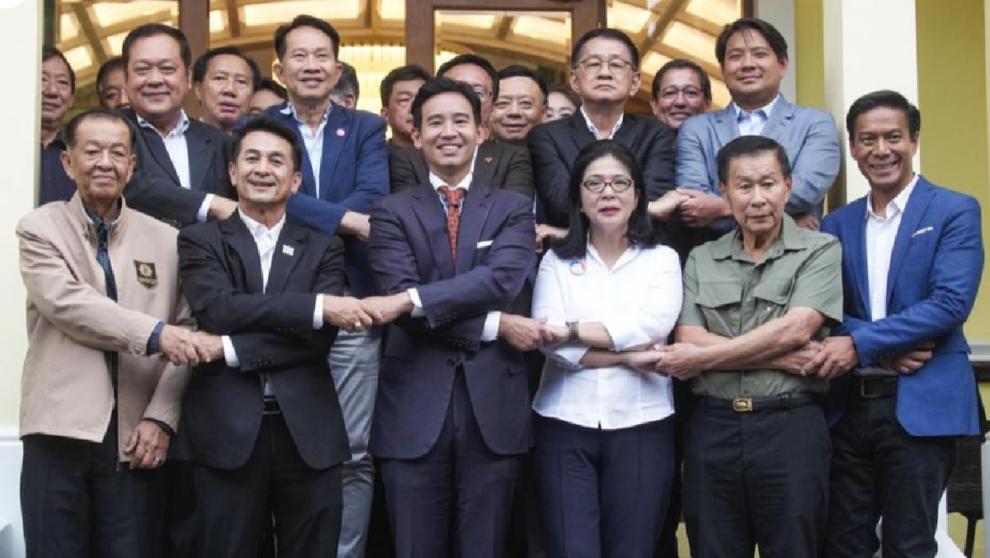Pita Limjaroenrat, leader and prime minister candidate for Thailand’s Move Forward Party, has announced an eight party lineup for a prospective coalition government on May 18.
Memorandum of Understanding
MFP emerged as the surprise winner of Thailand’s May 14 general election, winning the most number of seats (151) among all the contesting parties.
Although opposition parties were projected to do very well against the military linked government parties.
This proved to be a minor upset as it beat the Pheu Thai party of Paetongtarn Shinawatra, who had also aligned itself against the military-backed parties and won 141 seats.
This appears to not be an obstacle for cooperation, as both parties have joined in an attempt to form a government.
On May 18, MFP’s leader Pita Limjaroenrat announced his plan to form Thailand’s new government and be the its 30th Prime Minister, as reported by the Bangkok Post.
He also announced the other seven parties in his coalition, which included Pheu Thai, and other six parties that only managed single digit seat counts each.
Together, these eight parties combine for a total of 313 seats.
Pita said that all eight parties have agreed to support MFP as it had won the largest number of seats in parliament.
The next step would be for all eight to work on a memorandum of understanding for government formation, which will outline the guidelines for the coalition, and address national, political, economic, and social issues.
Interestingly, the details of the MoU is set to be announced on May 22, which is the 9-year anniversary of the 2014 military coup that ousted Paetongtarn’s aunt Yingluck Shinawatra.
Noalition
Although this is more than half of the 500 seats up for grabs on the May 14 election, the Thai PM is decided by a combined vote of the upper and lower houses of parliament, requiring 376 votes out of a total of 750.
This leaves MFP’s coalition 63 seats short of the number they need to guarantee forming the government.
The upper house consists of 250 senators appointed by the military government that came to power after the 2014 coup.
But Pita and MFP face hurdles in their bid to form a government, as one of MFP’s most prominent policy positions is reform of Thailand’s powerful Lese Majeste law that can penalise criticism of the country’s monarchy.
MFP’s position on Section 112, the formal name of the Lese Majeste law, has already caused the would-be third largest party in parliament, the Bhumjaithai party, to reject the possibility of joining with MFP according to Thai PBS.
Bhumjaithai has won 71 seats, and if they could be convinced to back the MFP coalition, this would allow for the circumvention of the senate.
But Bhumjaithai has said that it would not work with any party which seeks to amend the Lese Majeste law, although it did not mention MFP specifically.
Source: Mothership

















Add Comment